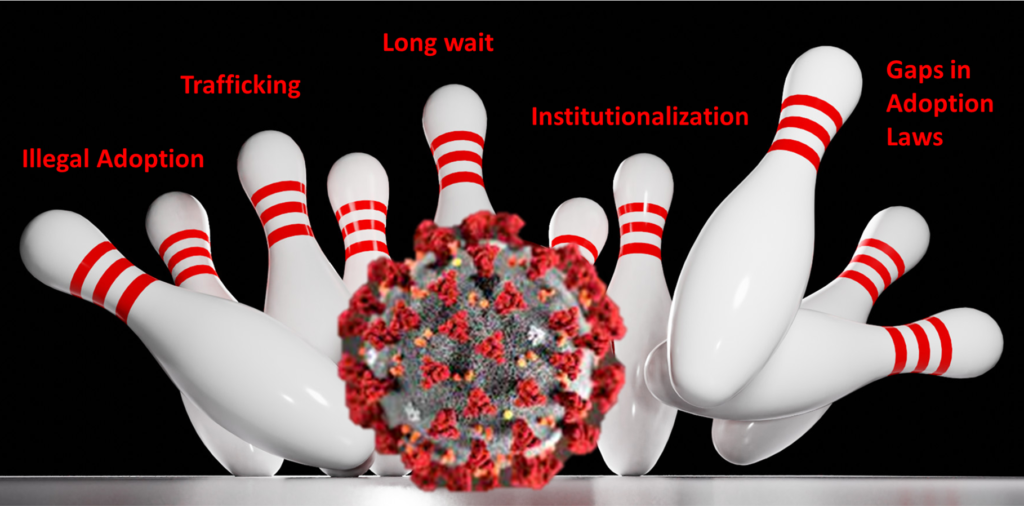
Covid-19 has devastated millions across the world. Closer home, over 30,000 children have been orphaned, lost a parent, or abandoned due to the pandemic, as per data submitted by the National Commission for Protection of Child Rights (NCPCR) to the Supreme Court. Some of them may be fortunate to have kith and kin to take care of, while the rest need immediate action to find a family though adoption. Even as there is hardly a silver lining that can be seen in Covid-19, it comes across as a unique opportunity to break through our archaic, ill conceived and parent centric laws that have failed to keep pace with the changing times.
There would be several thousand parents who would like to legally adopt, directly from the families of kids affected by Covid. The only glitch – only Hindus can legally adopt a Hindu child from another Hindu parent under the Hindu Adoption and Maintenance Act, 1956, popularly known as HAMA. People of all other faith must necessarily adopt a child from an orphanage or child shelter home, known as a Child Care Institution, that is linked to a Specialised Adoption Agency, regulated by the Central Adoption Resource Authority CARA, under the Ministry of Women and Child Development.
Adopting a child from an orphanage is time consuming. There are fewer than 2300 children legally free for adoption in orphanages all over India. More than half of them have a special need. In contrast, there are over 30,000 parents registered for adoption with CARA, most of them wanting to adopt a child below 2 years of age, of which there are fewer than 200 kids in the CARA pool. Not surprisingly, there is a wait of almost 2.5 years to adopt a healthy child below 2 years of age, through CARA. On an average, it takes a few months, sometimes up to a year, to declare a child residing in an orphanage legally free for adoption. Needless to say, both the parent and the child lose out in this bureaucratic process of adoption through institutions. The horrors of institutionalisation are not lost on anyone. There are well-researched and documented findings of how institutional care is detrimental to the health and development of a child. More so amidst a raging pandemic.
Covid-19, therefore, provides a unique opportunity to open the window of private legal adoption beyond Hindus, to people of all faith. Currently, as this being allowed only to Hindus, there is large scale trafficking of new-born and young kids to feed into the unmet demand for adoption of infants. This will facilitate direct adoption of millions of children, including those affected by Covid, from their parent family to the adoptive family, without going through an institution.
To tackle the surge of children orphaned by Covid-19, government can immediately take them into foster care by parents whose credentials are known, such as government servants, people working in private sector through employer referrals, parents who have already adopted through legal means via CARA, or even parents registered with CARA for adoption. A foster family will be anytime safer, better, and conducive to the child’s development than an orphanage. Till such time, the child is under foster care, the whereabouts the child’s family can be established, failing which the child can be declared legally free for adoption. In the same time, the government can conduct a background check and home study on the parents desirous of adopting the child, and certify them “Adoption Ready”. It is important to note that even in HAMA Adoptions, there is no home study or background check. This major loophole alone had led to widespread trafficking. It is therefore an excellent opportunity to rid HAMA of its loopholes. In about two months time, while the child is established legally free for adoption, and parents are declared fir to adopt, the adoption can be completed by executing an Adoption Deed before a District Magistrate. The whole process that takes almost three years through institutionalisation can be cut down to under three months.
Time is of essence. The pandemic is an opportunity. Let’s not continue to drive adoption in the country as per religion of the parent, but as per need of the child. Children are our most prized asset. Instead of doling out monetary relief, labelling them as Covid-Orphans – let us award them their rightful due to a secure and loving childhood – a Forever Family.
